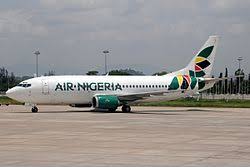The resurgence of the debate surrounding Nigeria’s aviation future revolves around the critical choice between reviving a national carrier or adopting a flag carrier model. Industry experts and stakeholders overwhelmingly advocate for the latter, arguing that a national carrier, wholly owned by the government, risks replicating the costly failures of Nigeria Airways. They point to the flag carrier model, characterized by shared ownership between government, private investors, and strategic partners, as a more sustainable and globally aligned approach. This model, they argue, allows for the injection of private capital, expertise, and operational efficiency, fostering competitiveness in the demanding international aviation landscape.
The distinction between a national carrier and a flag carrier hinges on ownership structure. While a national carrier is solely owned and operated by the government, a flag carrier involves diverse stakeholders, with the government potentially holding a minority stake. Experts dismiss the notion that any level of government ownership automatically qualifies an airline as a national carrier. They emphasize that meaningful ownership distribution among various partners is crucial for a successful flag carrier model. Examples from the African aviation landscape, such as the fully government-owned Ethiopian Airlines and RwandAir contrasted with the mixed ownership model of Kenya Airways, illustrate the prevalence and potential benefits of the flag carrier structure.
Veteran aviation professionals vehemently caution against resurrecting a government-owned airline, predicting its inevitable descent into a financially unsustainable entity reliant on continuous government subsidies. They propose a structured ownership model for a Nigerian flag carrier, allocating specific percentages to public investors, federal and state governments, and private airline operators and allied investors. This balanced approach, they contend, is essential to avoid the pitfalls of past failures and ensure long-term viability and profitability. The emphasis is on creating a commercially driven entity rather than a politically influenced one.
Beyond the economic considerations, the existence of a national or flag carrier holds symbolic significance, representing Nigeria’s image and presence on the global stage. A nation of Nigeria’s size and economic potential, experts argue, cannot afford to be absent from international air routes. A flag carrier, they believe, can serve as a potent symbol of the country’s aspirations and capabilities, attracting investment and promoting tourism. However, they also warn that the failures of the past, attributed to government interference and corruption, must be avoided at all costs. The current landscape of privately owned Nigerian airlines is not immune to challenges, with some accused of short-term financial maneuvering rather than sustainable business practices.
The collapse of Nigeria Airways serves as a stark reminder of the perils of mismanagement and political interference in the aviation sector. Experts contend that recreating a government-run airline would likely repeat these mistakes, leading to further financial losses and damage to Nigeria’s international standing. The global aviation industry has evolved, they point out, with many countries transitioning from national carriers to flag carriers or strategic partnerships to mitigate financial risks and enhance operational efficiency. This trend underscores the need for Nigeria to adopt a more modern and sustainable approach.
A well-structured flag carrier, proponents argue, offers Nigeria the opportunity to regain its footing in global aviation without exposing public funds to undue risk. This model allows for the integration of private capital and international expertise, crucial elements for success in a fiercely competitive industry. The choice facing Nigeria is not merely about branding or national pride; it is about strategically utilizing resources to maximize economic benefits, including expanded route access, reduced reliance on foreign airlines, job creation, and tourism growth. The key to success, however, lies in establishing transparency, effective regulation, and a firm commitment to protecting the airline from political interference. Only then can a Nigerian flag carrier truly flourish and contribute to the nation’s economic prosperity.














